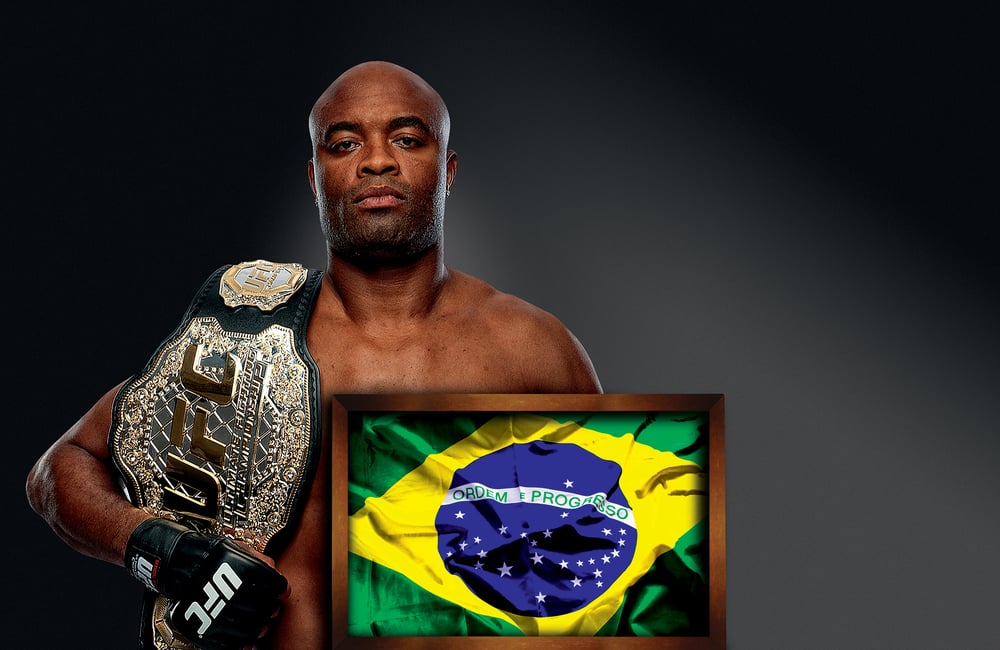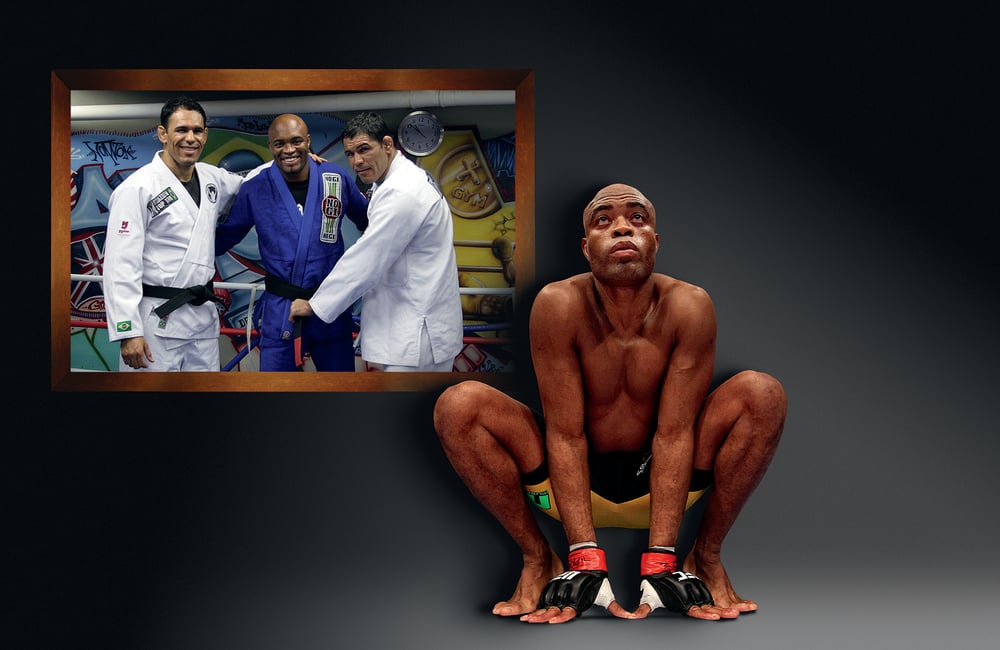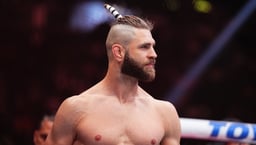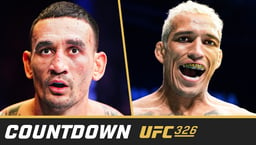
Issue 090
July 2012
UFC middleweight champion Anderson Silva reveals why hated enemy and number-one contender Chael Sonnen should be more worried about ‘The Spider’s fists at UFC 148 than running his mouth.
How is your preparation for this second fight against Chael Sonnen at UFC 148?
“The training began back in March, but I never really started heavy sparring until the start of April. Then Ramon Lemos joined the camp to help with my jiu-jitsu; Dr Angela Cortes – the same doctor who worked with ‘Minotauro’ Nogueira – is here to do all of my physiotherapy, Josuel Distak is coaching and Rogerio Camoes is doing my strength and conditioning. I’m going to have almost three months to make sure I reach my best shape.”
Are you approaching this fight looking for revenge for Sonnen’s outbursts, and is it the most important fight of your life?
“No. It’s just another fight. I’ll do my job as I always do. Victory and defeat walk side by side. I will train hard to make a historic fight, but I’m not worried about it. A fight is a fight, he’ll come trained, he’s an excellent wrestler. I will train hard as always. My life has always been a great challenge and now won’t be different. I will train to get focused and give joy to the Brazilian people.”
There was a growing concern about Sonnen’s safety in Brazil, no doubt heightened in America after the Brazilian crowds were cheering about him at UFC Rio (“you gonna die”), which is something imported from soccer and is just a provocation. Do you think it’s worked out best for his safety that the fight has been switched to Las Vegas?
“He only has to worry about his life inside the Octagon, not outside. Outside the cage he is all right. He just has to concern himself about training hard, just like I am doing. He never had to worry about the Brazilian fans.”
You’ve said you don’t think Sonnen deserves another shot at your title, why?
“The guy disrespected Brazil, the population, the MMA audience. He’s made personal attacks against me, my wife, my homeland, my jiu-jitsu masters (the Nogueiras). I’ve fought in Japan, England, Korea and I have always respected my opponents and the culture of all countries.”
What do you think of the ways he promotes a fight?
“When you mess with a nation, with a culture of a country, this is complicated. It’s the same thing to go to Saudi Arabia and rip the Al Quran. If it were me disrespecting America, I am sure I would have problems getting a visa to the US. I don’t like this kind of promotion. I do not like it at all. And I think the leaders of the events should review it. Normally martial artists have that naturally. But they should have a certain line of respect concerning this kind of personal marketing, of selling the fights.
“Unfortunately, Sonnen always crosses all the limits. Sometimes Dana White is upset with me because I don’t promote a fight the way he believes I should. But I am not a politician, I am not a promoter, I’m a fighter. Each has a way of promoting and mine is going there and fighting.”

Back in January you told me you had a shoulder injury, have you been able to heal it with just three months of physiotherapy?
“Yes. I worked hard on that and now I’m all healed. Of course, there’s always some small injuries, because that’s part of any professional fighter’s life. If you prepare to fight and are injury-free it’s because you haven’t trained. It’s always been like that. The problem is when it’s really serious and makes it impossible to train. And if you can’t train, you can’t fight well. Now I’m really feeling good and able to train hard to reach my best shape by the time of the fight.”
It seems like your popularity in Brazil has increased massively over the past year. Wherever you look in Brazilian press, we can see or hear you. How do you feel about that?
“I am really happy that our sport has reached that point and I’m so blessed to be part of it. A few years ago, MMA just had space in the police pages of Brazilian newspapers. Now it’s on the cover page of VEJA, the most popular Brazilian weekly magazine (it has a distribution of one million). Thank God the mentality of Brazilian media has changed, and, thanks to the UFC, people started to look at mixed martial arts as a sport. I hope soon European countries like Spain and France also understand and respect our sport.”
Soccer is the most popular sport in Brazil. Concerning the phenomenal growth in the popularity of MMA in Brazil, do you think one day MMA will be even more popular than soccer?
“It’s hard to say, more because soccer has been part of Brazilian culture for such a long time. Soccer reaches all social levels and there are many generations of idols. Brazil is the only country that has won the World Cup five times. But MMA is growing so quickly here, anything can happen. Let’s wait and see.”
Do you believe that a Brazilian fighter could ever reach the status of Pele, or Ronaldo or Ayrton Senna?
“I believe all these idols have their importance for Brazilian fans and Brazilian history. Maybe one day MMA may have an idol of such a level, but those ones will always be remembered and respected as our biggest heroes.”
How has your new-found fame and celebrity affected your family?
“Definitely, it is a totally new reality for us. There are no private moments anymore. The fans always come to ask for pictures and autographs and they don’t want to know if it’s the best time for you and your family. But we are dealing pretty well with all that. I try to be nice to everyone. The other day I was at my home and saw a paparazzi on the top of my wall, taking pictures and hiding. I told him, ‘Man, please come down here and take the pictures you need and leave, otherwise, I will feel bad if you fall and get hurt.’ The guy took his pictures and left.”
Had you ever hoped to receive this level of recognition in your homeland?
“To tell you the truth I always hoped, but I thought it was going to happen only for the next generation. I’m blessed to live that historical moment for the sport in Brazil.”
Is it true that you take some of your fighting techniques from movies and video games?
“That is true. I love Street Fighter, I have a collection of dolls, like Guile, Sagat, Ryu, Ken. I take a lot of movements from them into my fighting game. I also love to watch fight movies. One knockout I applied in Cage Rage using my elbow (Tony Fryklund, London, 2006) was taken from the movie Ong-Bak. The guys working my corner said, ‘Please don’t do that, you are going to be knocked out.’ But I decided to try it and it worked.”
What did you think about the first season of The Ultimate Fighter: Brazil?
“I haven’t been following it that much on TV, but I went there to participate in one episode. I was there watching and the kids are talented, but I’m not following it at home because I am very focused on my fight. In the end, they will have a big fight, even more eagerly-expected than mine, because they are both historical rematches.”
You are talking about Vitor Belfort finally fighting against Wanderlei Silva once more. Who are you rooting for?
“I’m rooting for Wanderlei. We are good friends and grew up together in Chute Boxe. I already told him that if he needed help our doors at Team Nogueira will always be open for him.”
You were originally scheduled to fight at the same event, here in Brazil, so why didn’t you train together?
“Mainly because Wanderlei is based in Las Vegas right now and he also trains at Kings MMA with Rafael Cordeiro, in LA. I’ve done most of my camp here in Rio de Janeiro.”

What are your memories of the past, the Chute Boxe days?
“I don’t have good memories about Mecca and Pride. The only good memories of the past are my fights against Carlos Newton and against Sakurai, when I got my first belt in Shooto. The fights in Mecca and some Pride fights I don’t have good memories.”
Is that because you were working at McDonald’s whilst training hard at Chute Boxe, mostly just being a sparring partner for guys who were already making a good money, like Wanderlei?
“My routine was really hard. Besides training hard without any perspective, it’s true I used to work in a fast food restaurant and also work as a night security guard. I already had two children to feed and soon would come the third and fourth. It was such a hard time.”
How much money did you make in your first MMA fight, when you fought a tournament 400km away from Curitiba, in Mato Grosso state?
“My life was made by challenges. In that event I traveled alone from Curitiba to Mato Grosso to get R$500 (USD$300) – but only if I won the tournament. Thank God I won. I’d actually already traveled to Sao Paulo to fight in a Muay Thai tournament for free, so... But challenges have always made me strong, they’ve made me who I am today. In Pride, once they scrapped the 83kg category, I used to fight at 93kg. So I’ve never run from challenges.”
What has been the most difficult moment of your career so far?
“No doubt when I left Chute Boxe and Rudimar Federigo prohibited me from fighting in Pride. He said that if I go there, Wanderlei would be out. At that time I passed through a very difficult moment, and if it was not for Rodrigo ‘Minotauro’ I would have stopped fighting. He borrowed me some money and told me that he wouldn’t allow a talented guy like myself to walk away.
“Also, he entered me to fight in other international events. That’s why I always say that the Nogueira brothers are much more than friends to me, they are like my family and I’ll never forget that. The place I am in now is because of them.”
Is that why you cried so much when Minotauro knocked out Brendan Schaub at the first UFC Rio event? You even said afterward that it was really difficult to regain your focus to face Yushin Okami.
“Minotauro was present in the most difficult and also one of the most remarkable moments of my career, for sure the most emotional. I cried like a child when I saw the arena screaming Rodrigo’s name after he knocked out Brendan Schaub. Nobody can imagine how hard and painful his two surgeries (two hips and a knee) were. He spent eight months away from training.
“Three months before that fight he was not even walking. All the team was really worried about that. But once again, he showed why he is the biggest example of triumph over adversity anyone can ever have in life. When he knocked out Schaub all the team cried and, yes, it was hard for me to recover and get my focus back.”
You told me you were happier with ‘Big Nog’s win than your own, right?
“No doubt, it was one of the best moments of my fighting career.”
You’ve broken so many UFC records and are considered to be the best mixed martial artist ever. After so many successes, what still motivates you?
“What motivates me is to wake up every day and see I am perfect in the sense of walking, running, and being able to train. To help these kids who encourage me every day. I realize that the kids that are coming into the sport are very talented and have everything to one day go on and become great champions. Having these kids to work alongside gives me a lot of energy to continue.”
I’ve followed your career ever since your first fight in Mecca (2000), and since then whenever the training camp finishes you always continue, normally helping your sparring partners, and sometimes, like today, beginners. Why do you do that?
“It’s because I’ve been a sparring partner and I know how important it is for the fighters. Those guys lend their bodies every day for us to improve our technique, dreaming that one day they will also reach the top. I lived that life when I was in Chute Boxe, remember. So I will always give great value to my sparring partners and teammates. I know that a fighter is nothing without a team backing him up.”
Speaking of your teammates, who do you predict as possible successors?
“There are several athletes that are emerging. Patricky ‘Pitbull’, Paulo Bananada, Erick Silva, Alemao, Gigante... We are all working hard to help them achieve their goals.”
What can mixed martial arts do for the poorer people of Brazil?
“I believe our sport can do a lot for poor people in Brazil. With the sport being shown on TV many guys are dreaming about becoming professional MMA fighters and not only soccer players now. There are many fighters coming from slums to train in the most important training centers. The Nogueira brothers have a social project to help some slum people. My sponsor, Corinthians, has just built a huge MMA training center and hired a team of professional coaches. They will also have a social project to help people who want to become a fighter and can pay. Maybe, after Corinthians, we will have other soccer teams building MMA teams and finding new MMA talents all over the country. That way, the sport will get even bigger pretty soon.”
Last time we talked, you told me that you don’t see anybody beating Jon Jones. Do you think he should go to the heavyweight division to face new challenges?
“When the guy dominates his category the crowd soon asks, ‘Make super-fights.’ But it doesn’t work that way. He has a good body type for his weight division and he’s absolutely dominating due to having the perfect biotype. If I was to fight in his weight division, I don’t have this body type, even though I have fought at light heavyweight in the past. I’ve also competed at 73kg. With the maturing of my body, I now weigh 100kg, it’s all biotype. ‘Cigano’ [Junior Dos Santos] will be absolutely in his category because of his biotype. Jon Jones will make history in his weight division and then perhaps one day move up to heavyweight. But, with Cigano, I will do everything to keep that belt in Brazil… This is MMA hegemony here.”
Last year you told me you were planning about retiring soon, but right after that you changed your mind and got excited to fight again. What is the status of your contract with the UFC and how many more years we will see Anderson Silva fighting?
“I have six fights on my contract remaining. When these fights are over I will decide if I’ll eventually stop or keep on fighting. A lot will depend on how I will be feeling then. I’ve never had any serious injuries, all I’ve ever had were due to excessive and repetitive training. I guess I can keep fighting another three or four years.”
...









